The logistics industry is growing faster than the rest of the job market. Demand for logistics professionals has steadily risen over the past decade. With this growth comes unique challenges for companies and their employees. Logistics coordinators are crucial in today’s fast-paced logistics industry. Whether your company deals with transportation, warehousing, shipping, or another facet of logistics, a qualified logistician can make all the difference when it comes to staying on top of things. Logisticians must be well-versed in software and manual processes supporting other business departments and helping them achieve their goals. The responsibilities of a logistician vary from one company to another, but they almost always require an individual who understands how every department works together to achieve optimal performance levels. If you want to become a logistics coordinator and impress potential employers with your resume, you’ve come to the right place.
Logistics Coordinator Resume Example

Download This Logistics Coordinator Resume as PDF
Warehouse Associate Resume Example
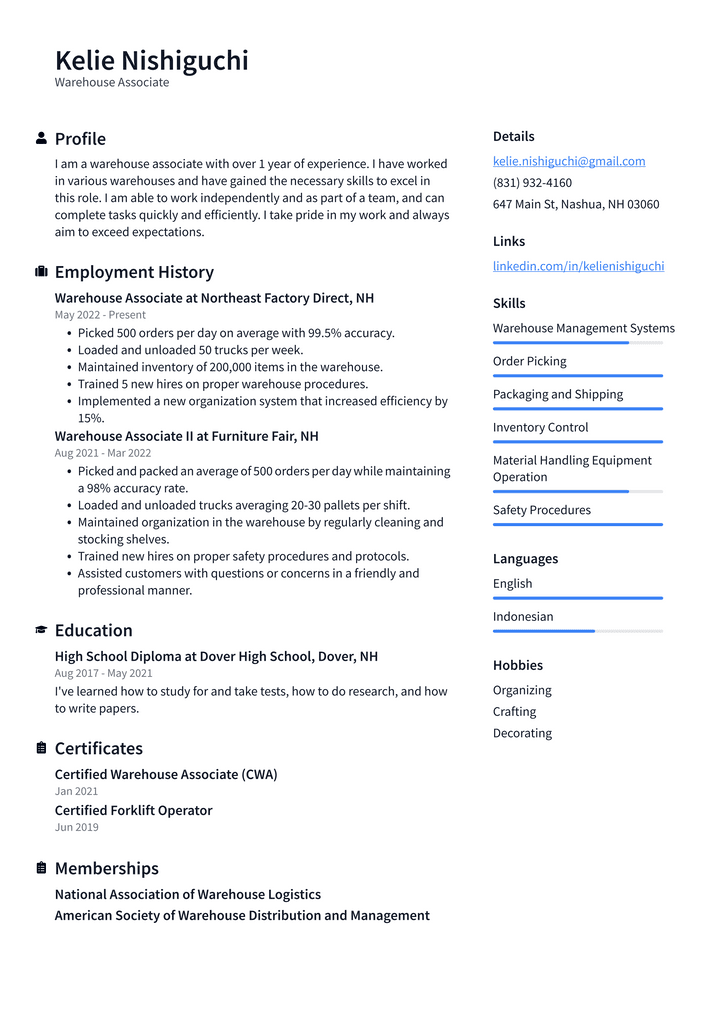
Download This Warehouse Associate Resume as PDF
Inventory Control Specialist Resume Example
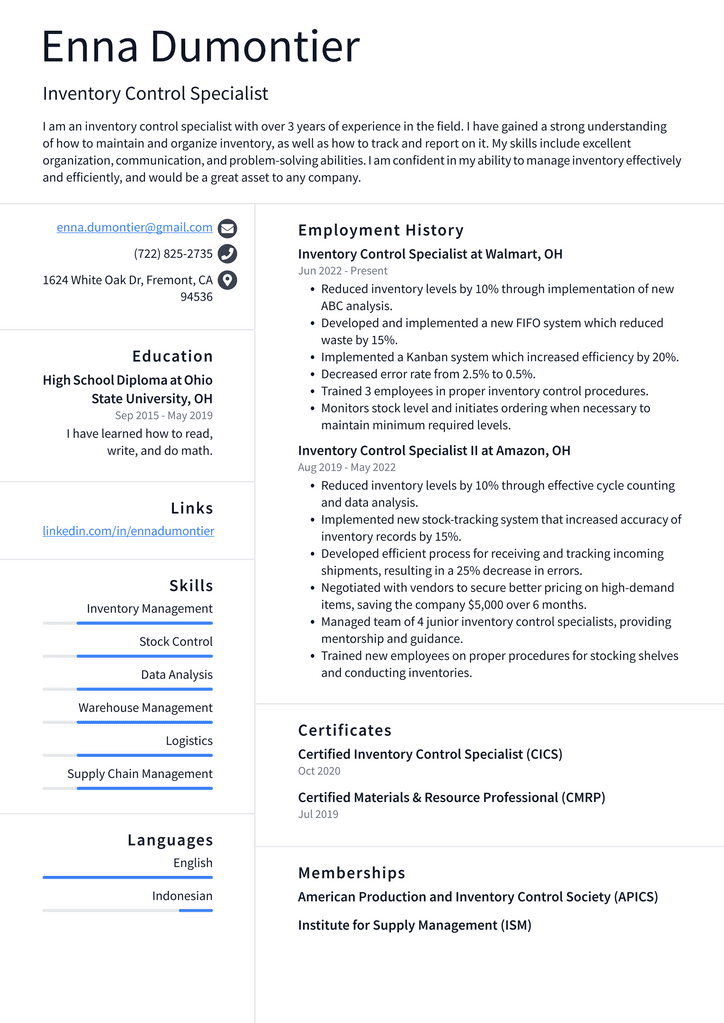
Download This Inventory Control Specialist Resume as PDF
Shipping and Receiving Clerk Resume Example
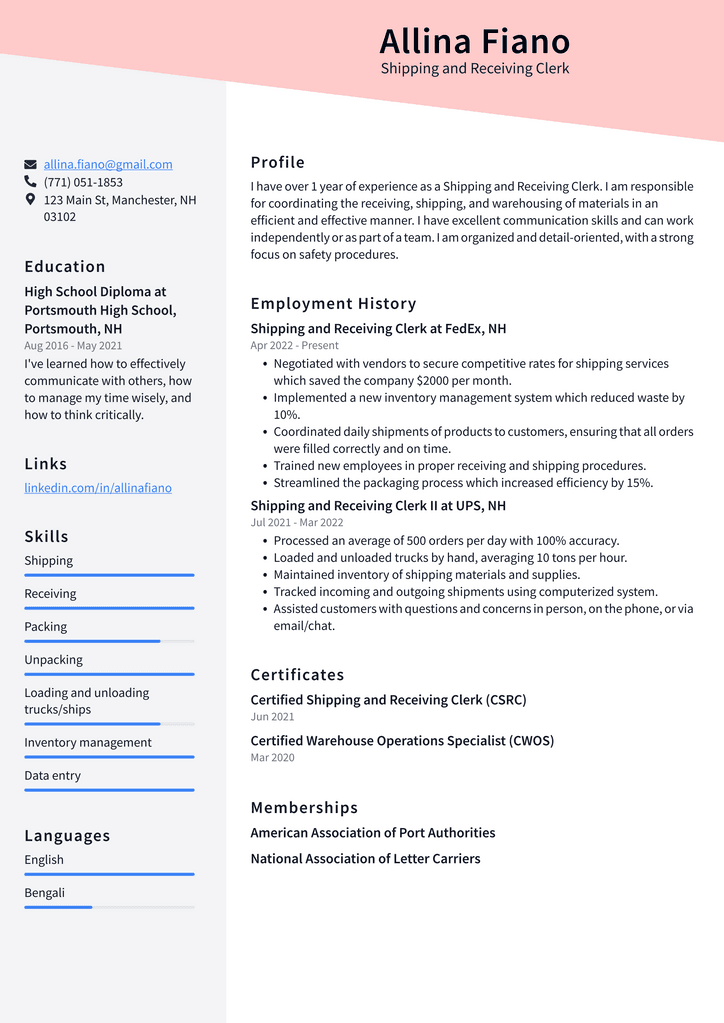
Download This Shipping and Receiving Clerk Resume as PDF
Operations Manager Resume Example
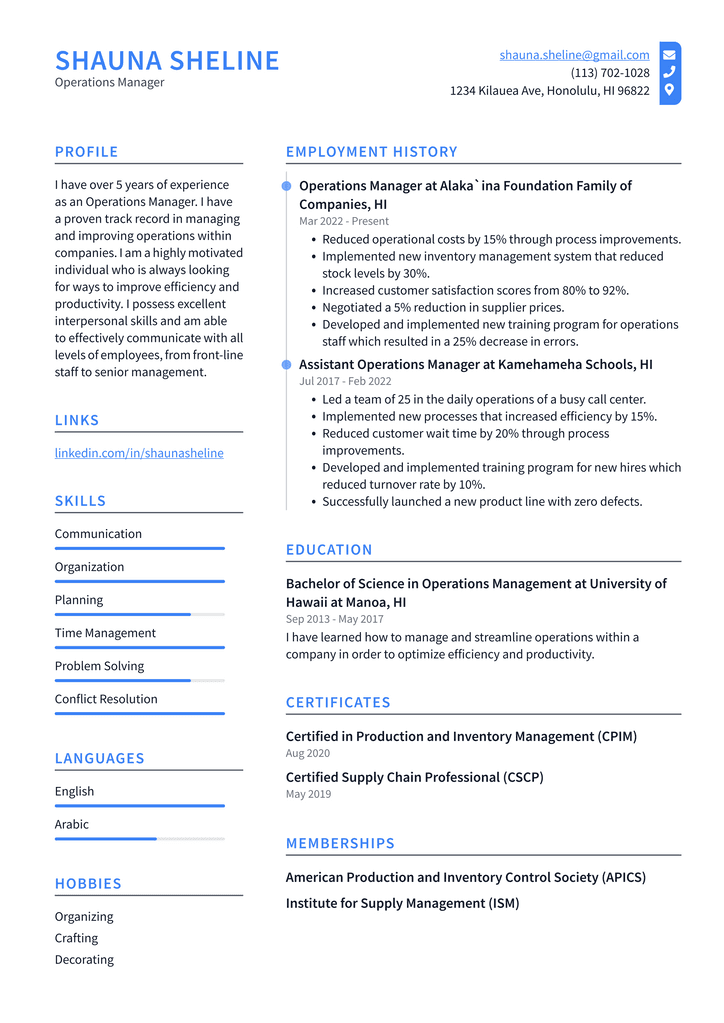
Download This Operations Manager Resume as PDF
Supply Chain Manager Resume Example
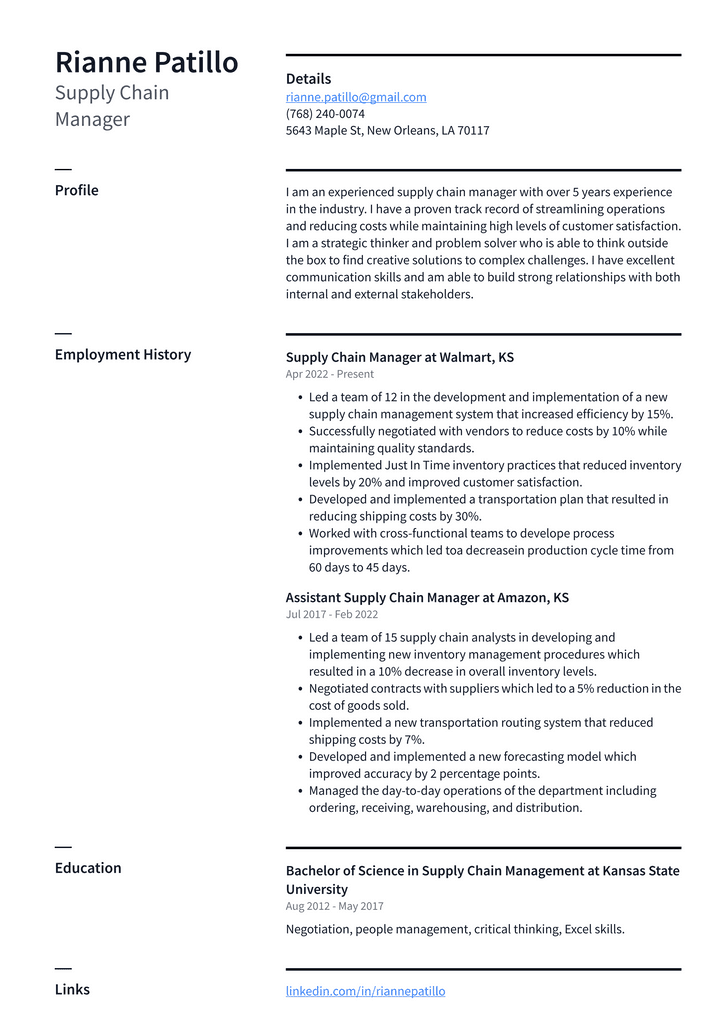
Download This Supply Chain Manager Resume as PDF
Logistics Specialist Resume Example
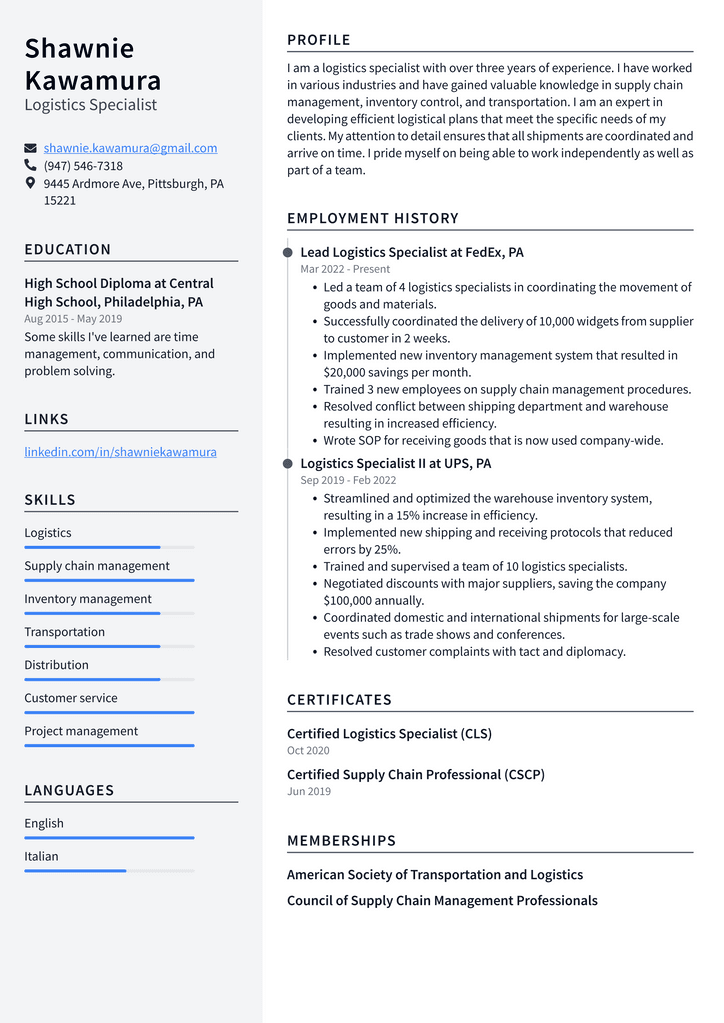
Download This Logistics Specialist Resume as PDF
What is a Logistics Coordinator?
A logistics coordinator is an individual who coordinates various logistics activities to help a company function smoothly. These activities could include shipping, warehousing, inventory management, and transportation. Logistics coordinators are typically employed in manufacturing and distribution companies with complex supply chains. The logistics industry is one of the fastest-growing industries in the world. However, logistics coordinators can be found in other sectors that require moving materials or products to different locations. These industries include hospitality, healthcare, government, and technology. A logistics coordinator is involved in executing a company’s logistics strategy. They oversee and coordinate logistics activities such as the management of inventory, transportation, and warehousing processes. Logistics managers are responsible for planning and executing the flow of products and materials through a company’s supply chain.
Duties of a Logistics Coordinator
As a logistics coordinator, you will have many responsibilities, such as: – Managing inventory: The movement and management of stock are crucial aspects of logistics operations. As a coordinator, you will manage the entire inventory process, from procurement to delivery. – Transport management: If your company uses third-party carriers, you must ensure the timely delivery of goods to customers. If your company operates its fleet, you will handle maintenance and scheduling issues, as well-follow the standard operating procedures (SOPs). – Planning and execution: Successful logistics operations result from detailed planning and regular execution of those plans. Your primary goal will be to ensure that products are transported according to schedule and that the appropriate personnel is assigned to each task. – Partner management: No matter what industry you’re in, you will need to work with other departments, such as sales and marketing, to ensure their goals are achieved. – Other duties: As a logistics coordinator, you will also be responsible for the quality control of your department’s work. You will need to ensure that your team follows the company’s policies and procedures, including safety and regulatory compliance. You may also need to make recommendations to improve your department’s efficiency.
How to Become a Logistics Coordinator?
As with any other job, you must have relevant experience before applying for a logistics coordinator position. There are several ways to get the knowledge you need to become a logistician. Here are a few: – Work in a logistics company: If you have the option, working in another logistics company can be very beneficial. Working as an intern or in a junior position can give you hands-on experience that will help you in the future. – Get a logistics or transportation degree: A logistics degree program will give you a strong foundation in the field. It will prepare you for the many challenges that lie ahead. – Learn the software: You will need to learn the software used in your company. Some software includes SAP, Oracle, Microsoft Dynamics, and SAGE.
Tips for Becoming a Successful Logistics Coordinator
To become a successful logistician, you should follow these tips: – Learn the logistics process: The logistics process is the lifeline of any logistics organization. Learn the process in detail and make sure that you understand each step. – Learn the regulatory compliance: The transportation industry has a lot of regulatory compliance issues. You need to know how to deal with them. – Know the industry: The logistics industry is vast. Make sure that you know the different types of companies that operate in the logistics industry. – Keep up to date: Ensure you are familiar with the latest trends in the logistics industry. It’s essential to keep up to date with the latest developments. – Develop solid interpersonal skills: Be collaborative and ensure you can work well with others. Develop strong interpersonal skills.
Conclusion
To become a successful logistician, you must have strong analytical, organizational, and management skills. A logistics coordinator must be able to juggle many responsibilities and achieve results. They must also be able to deal with the many challenges in the transportation and logistics industry. However, if you follow the tips outlined in this article and prepare for the position, you will succeed in this challenging and rewarding field.